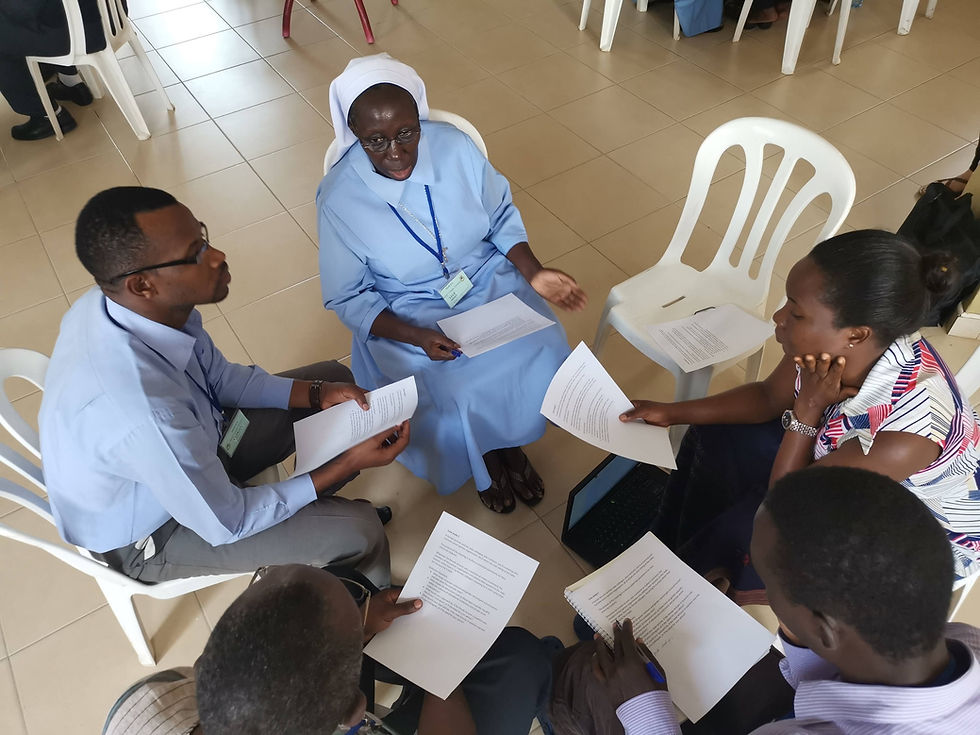UMU’s approach to gender seminars, and student gender champions and clubs
- TESCEA team
- Oct 18, 2021
- 2 min read
Mini case study
In 2020, Uganda Martyrs University (UMU) delivered a series of gender awareness raising seminars to students. Facilitated by the university’s multipliers, these sessions were designed to develop an understanding of gender-responsive pedagogy and also to inspire further advocacy at the student level. This was, for example, through the nomination of student champions and the development of student clubs.
The intention was initially to only train student leaders, who would then cascade this training down to the rest of the student body. However, the sudden lockdown of all educational institutions in Uganda meant that student leadership would likely finish their studies online and be unable to carry forward activities to other students. As such, the strategy changed to delivering online training to all students. Online delivery also had the benefit of broad participation without the risk of COVID-19 transmission.
To reach as many students as possible, the seminars were advertised through a variety of means. For example, the university’s technical team created a promotional banner that was shared on different platforms used by students, including WhatsApp and Facebook as well as on UMU’s official media accounts and mailing lists.
Each seminar was delivered on Zoom and ran for approximately three hours. Each topic was managed by two facilitators (multipliers) and included a number of interactive activities (see the ‘energizer’ appendix in the toolkits for activities to use). The UMU team reported that gender riddles, included in the sample agenda below, were particularly effective at engaging and energising participants.
To support the asynchronous sessions, a space was also developed on the University’s Learning Management System (LMS), Moodle. This online space acted as a repository for all the relevant materials and activities, which participants could continue to access after the sessions.
Following the awareness-raising seminars, the election of student gender champions was postponed until it was possible for students to meet physically. This materialised in May 2021, where five gender champions and a gender club were established at each of the six UMU campuses.
The approach was as follows:
Student gender champions, who would become club leaders, were elected.
The gender champions were then responsible for recruiting more students to join the clubs.
Additional gender sensitisation was offered to new club members, and gender champions were offered training on making a club constitution.
The club constitutions were finalised, and delivery of further gender-awareness activities planned.
When delivering this approach, the team at UMU needed to address two main challenges. First, as delivery was online, poor internet connectivity was a serious issue. On the side of the facilitators, this was mitigated by providing transport to places with better connectivity. As described in the parent case, another challenge was addressing resistance to this type of gender awareness raising in general. However, as Agrace Atwikirize, reflects, “as days went by, [students] realised the need to have a gender-responsive learning environment, pedagogy for all.”
Written by Agrace Atwikirize (lecturer from Uganda Martyrs University) and Josie Dryden


Comments